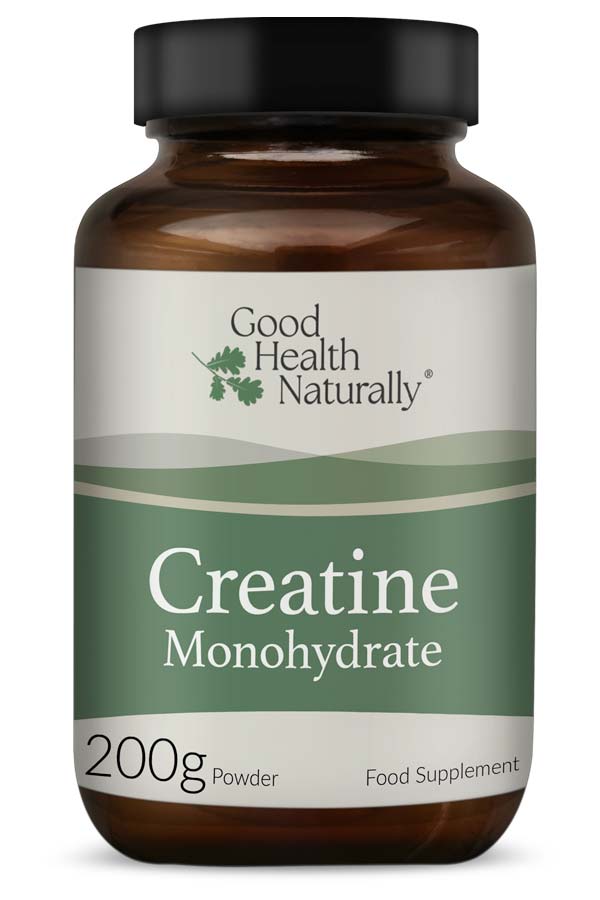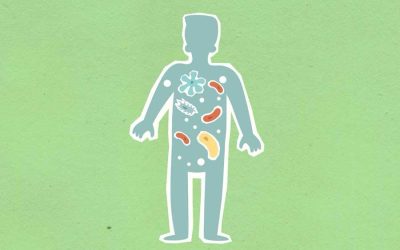For decades, creatine has been widely used by athletes to support energy, endurance and strength. But growing research suggests its benefits may extend far beyond physical performance. Scientists are now asking an intriguing question: could creatine also help support brain energy and cognitive function?
A new pilot study from the University of Kansas Medical Centre has explored the connection between creatine and Alzheimer’s disease, examining whether higher brain creatine levels might influence memory and thinking. While the findings are still early, they hint that creatine, long valued for its role in muscle energy, may also help fuel the brain, offering a promising area for future research into cognitive health.
The Energy Problem in Alzheimer’s Disease
Alzheimer’s disease isn’t just about memory loss; scientists now believe an energy crisis in the brain may play a huge role. In healthy brains, mitochondria efficiently turn nutrients and oxygen into usable energy. However, in people with Alzheimer’s disease, this process breaks down. It appears that brain cells may be struggling to produce sufficient energy, which can impair communication between neurons and accelerate cognitive decline. Research into Alzheimer’s prevention is expanding rapidly, and other nutrients such as lithium may also play a role in reducing Alzheimer’s risk, as explored in our related article.
Creatine’s Role in Cellular Energy
Acting as an energy shuttle, creatine helps transport and store the fuel cells need to function. While most creatine is found in muscle tissue, the brain also relies on it. Researchers studying creatine and Alzheimer’s disease believe that increasing brain creatine levels may help restore energy flow and support aspects of mental sharpness.
The Study: Exploring Creatine and Alzheimer’s Disease
A recent pilot study from the University of Kansas Alzheimer’s Disease Research Centre explored whether creatine supplementation could raise brain creatine levels in people living with Alzheimer’s disease. The full study is available on PubMed for readers who would like to review the technical details.
Study Design and Participants
To test this idea, scientists recruited 20 participants aged 60–90 who were living with Alzheimer’s disease. For eight weeks, participants consumed 20 grams of creatine monohydrate daily in two 10-gram doses, which is significantly higher than the typical 5-gram daily dose used by athletes. The goal was to ensure enough creatine passed through the body’s natural filters and reached the brain. Participants underwent blood tests and advanced magnetic resonance spectroscopy scans to measure changes in brain creatine levels.
Results and Observations
Nineteen participants completed the program with over 80% compliance and no serious side effects. Mild symptoms, such as muscle cramps or digestive discomfort, were reported but typically subsided within the first couple of weeks.
The results were promising. Researchers observed an 11% increase in brain creatine levels, and even small changes can be meaningful. Participants also showed moderate improvements in working memory, executive function and language processing. They performed better on memory tests that involved focus and attention, with some demonstrating improved reading and word recognition skills, which are often affected in Alzheimer’s disease. These early findings add to growing interest in the link between creatine and Alzheimer’s disease, suggesting that creatine may influence brain energy and cognitive performance.
Why Creatine Matters in Alzheimer’s Disease
A Boost in Brain Energy
 An 11% increase in brain creatine may not sound like much, but it’s a significant sign that the supplement reached the brain and influenced its biochemistry. Energy efficiency in brain cells affects everything from memory formation to the control of inflammation.
An 11% increase in brain creatine may not sound like much, but it’s a significant sign that the supplement reached the brain and influenced its biochemistry. Energy efficiency in brain cells affects everything from memory formation to the control of inflammation.
Reducing Inflammation and Oxidative Stress
Creatine may also play a role in reducing inflammation and oxidative stress. The buildup of unstable oxygen molecules, known as free radicals, is recognised as a contributing factor to brain ageing and neurodegenerative diseases. By supporting mitochondrial function, creatine could help restore energy balance, promote repair and enhance resilience in brain cells.
Supporting Microglial Health
This increase is significant because creatine supports mitochondrial function and energy production not just in the neurons, but also in microglia, the brain’s immune cells. When microglia have sufficient energy, they tend to remain in a supportive, non-inflammatory state, which could help reduce harmful inflammation common in Alzheimer’s disease brains.
A Word of Caution
This was an early-stage, uncontrolled study, meaning there was no placebo group for comparison. The sample size was also small, which limits the extent to which the findings can be applied. However, the results provide the first evidence that high-dose creatine supplementation is both feasible and potentially beneficial in people with Alzheimer’s disease. Future research will need to confirm whether creatine truly enhances cognition and further explore how it influences brain metabolism, inflammation and oxidative stress.
A Simple, Accessible Approach
What makes this research especially exciting is its simplicity and accessibility. Creatine is inexpensive, widely available and already well-studied for safety in healthy adults. It also has broader potential benefits for healthy ageing, as explored in our article on the benefits of creatine for strength, brain and bone health. If future trials confirm these findings, creatine could become one of the most practical tools for supporting brain health in ageing and neurodegenerative conditions.
Final Thoughts
Creatine might be best known for helping athletes power through workouts, but its greatest potential could lie in recharging the ageing brain. By supporting mitochondrial health and helping protect neurons from stress, creatine may one day play a role in slowing aspects of Alzheimer’s disease—energising new hope for cognitive health.
Although this pilot study was small, it adds to the early evidence suggesting that supporting brain energy metabolism could be a valuable direction in creatine and Alzheimer’s disease research. Maintaining healthy brain energetics may not only help support cognitive function but also preserve overall resilience as we age.
FAQ: Creatine and Alzheimer’s Disease
- Can creatine help with Alzheimer’s disease?
Research is still in the early stages. A recent pilot study suggests creatine may influence brain energy and support certain aspects of cognitive function, but much larger and longer-term studies are needed before any conclusions can be made. - Is creatine safe for older adults?
Creatine is widely considered safe for most healthy adults when used at standard doses. Older adults, particularly those with kidney issues or on prescription medication, should seek medical guidance before starting creatine supplementation. - How does creatine support the brain?
Creatine helps store and transport cellular energy. The brain depends on this system for processes such as memory, communication between neurons and repair. Some researchers believe supporting this energy pathway may be relevant to Alzheimer’s disease. - What dose of creatine was used in the study?
The pilot study used 20g per day for eight weeks, which is significantly higher than the usual 3–5g daily dose typically taken for general supplementation. This higher amount was chosen to see whether creatine levels in the brain would increase. - Can creatine prevent or slow cognitive decline?
There is currently no evidence that creatine can prevent Alzheimer’s disease or slow cognitive decline. Early studies suggest it may influence brain energy metabolism, but more research is needed to understand its potential role. - Should someone with Alzheimer’s disease take creatine?
It’s too soon to recommend creatine for Alzheimer’s disease. Anyone considering creatine alongside a medical condition should consult a GP or healthcare professional for personalised advice.
References
Creatine monohydrate pilot in Alzheimer’s: Feasibility, brain creatine, and cognition – PubMed
Creatine shows potential to boost cognition in Alzheimer’s patients
Creatine – Helpful in Alzheimer’s Disease – David Perlmutter M.D.




